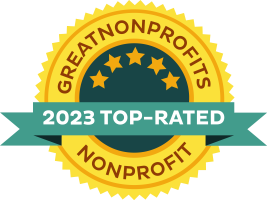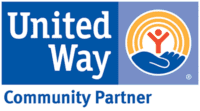
Hello November!
It’s that What-things-are-you-grateful-for time of year. It’s well known that gratitude is healthy. Robert Emmons, a professor of psychology at the University of California, has done extensive research on gratitude and learned that it not only effects a positive emotion – it also improves health. We believe in gratitude. Fort Worth has become a Blue Zones city—and Camp Fire, a Blue Zones work site— is putting into practices many strategies that lead to health, including time for reflection on the good things and people in our lives.
There are some pretty standard answers to the November question about thankfulness–children, spouses, faith, life itself perhaps. I was curious about what things actually do top the list for people of different ages. So, I Googled that—and found this:
Children: In an analysis of gratitude of children, researchers learned that themes of family, friends, teachers and basic needs were common. Interestingly, it was also noticed that while girls were more likely to be grateful for interpersonal relationships, boys were more likely to be grateful for material things. From personal experience (I kept a grateful journal with my children) I know that when younger, my children leaned toward the concrete (the Game Boy, Nana, spaghetti)—and as they grew older, to the more abstract and descriptive (caring relationships, peaceful afternoons, the way time was spent with friends).
Adults: In a poll of 2,225 U.S. adults most were thankful for the health of their family and family relationships, followed by things like good-easily accessible technology (interesting), and their personal economic situation.
End-of-life seniors: In a study done on seniors in care settings, researchers learned that enjoying the little things, feelings of being “at home,” and feeling important in the life of others were among the top categories of what constituted the things they were most grateful and hopeful for.
Even in the search for gratitude—each day seems to demonstrate that life is good and bad and everywhere in between and beyond. I was reminded recently that everyday isn’t good, but there is good in every day. I have learned that some days it’s harder to find the good than others, and other days the good just bursts through the day—leaving me with a nothing-can-make-me-feel-bad-today feeling.
When I was little, I used to think if I purposefully thought in those moments, “This is a time I’d like to come back to” – that I could. And to some degree, that is actually true. Moments I have taken the time to think about, and be grateful for, as they happen, are easier to access in my memory. They are the ones I come back to, even if simple.
Like the time in Jr. High when I was in the library in a class, and I looked out the window and saw blue sky, and puffy clouds, and just thought to myself — “I feel good today — this would be a good moment to come back to.” And now I can.
Simple little moments and big wonderful moments. It’s worth the effort of gratitude each day—throughout the day. Together, we can make sure that regardless of age, the good isn’t overshadowed by the bad. Seek the good in each day — embrace it — share it — and go back to it when you need to. For this ability — I am grateful.
Anderson, Magdalena, Hallberg, Ingalil, Edberg, Anna-Karin. Old people receiving municipal care, their experience of what constitutes a good life in the last phase of life: A qualitative study. International Journal of Nursing Studies, Volume 45, Issue 6, June 2008, Pages 818-828
Gordon, Anne, Musher-Eizenman, Dara, Holub, Shayla, Dalrymple, John. What are children thankful for? An archival analysis of gratitude before and after the attached of September 11. Journal of Applied Developmental Psychology, Vollume 25, Issue 5, September-October 2004, Pages 541-553
Harris Poll October 14-19, 2015
 Lyn Lucas is the Chief Program Officer at Camp Fire First Texas. Lyn brings more than 20 years of experience working with children and youth. Her specialties include working with children in both the non-profit and for-profit sectors, managing school-age programs and NAEYC-accredited early childhood education programs. She has served as a Program Director, Child Development Coordinator, Child Care Center Director, Regional Director, a Master Registered Trainer in early care and education and has taught numerous classes and workshops throughout North Texas. Lyn holds a Master of Education in curriculum studies and serves on the Texas Youth and Child Care Worker Association board.
Lyn Lucas is the Chief Program Officer at Camp Fire First Texas. Lyn brings more than 20 years of experience working with children and youth. Her specialties include working with children in both the non-profit and for-profit sectors, managing school-age programs and NAEYC-accredited early childhood education programs. She has served as a Program Director, Child Development Coordinator, Child Care Center Director, Regional Director, a Master Registered Trainer in early care and education and has taught numerous classes and workshops throughout North Texas. Lyn holds a Master of Education in curriculum studies and serves on the Texas Youth and Child Care Worker Association board.






